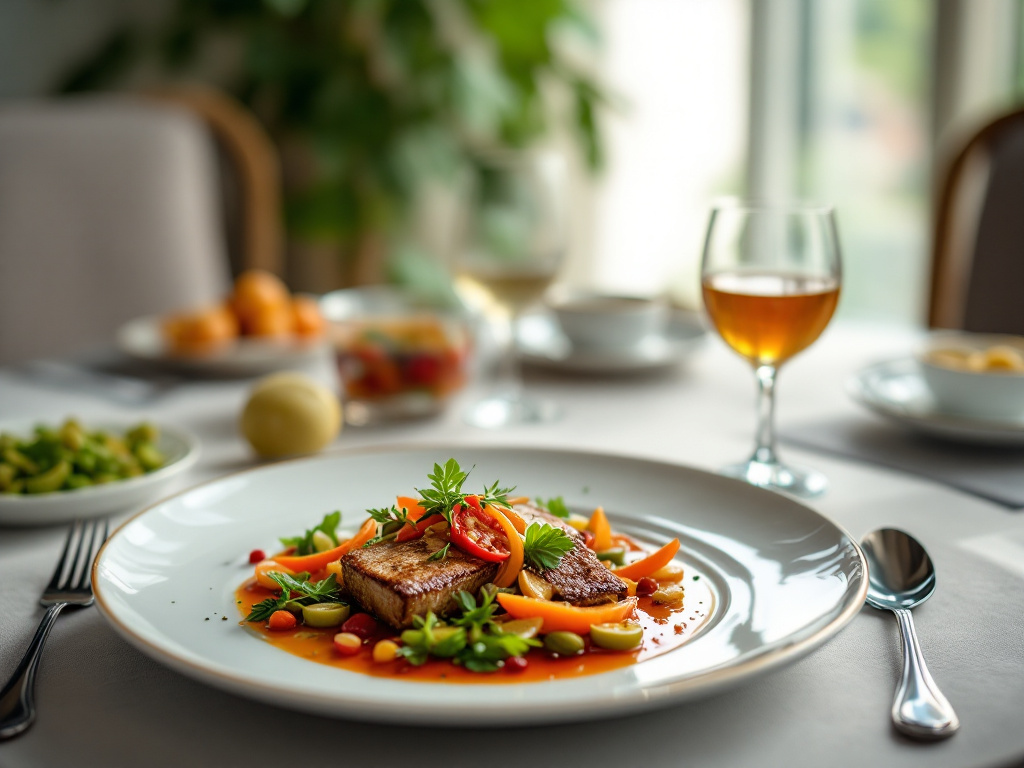When you choose a program that features gourmet meals rehab options, you invite a powerful ally into your recovery process. Fine dining designed to meet your specific dietary needs can accelerate physical healing, bolster your immune system, and foster mindful awareness. In this article, you’ll explore how a tailored culinary approach enhances your journey through men’s inpatient rehab 45-60 days with a blend of evidence-based care and luxury.
Whether you’re comparing private residential rehab facilities or evaluating a luxury men’s rehab environment, understanding the role of high-quality meals will help you make an informed decision. From nutrient-dense ingredients to interactive cooking workshops, gourmet dining is more than a meal—it’s an integral component of comprehensive addiction treatment.
Understanding gourmet meals rehab
Defining fine dining in recovery
Gourmet rehab dining refers to carefully prepared meals that balance luxury and nutrition. Chefs skilled in recovery-focused cuisine craft menus to support your body’s repair mechanisms. These personalized dishes often feature organic, nutrient-dense ingredients that promote faster healing and sustained energy levels [1]. By addressing allergies, chronic conditions, or post-detox requirements, fine dining in a rehabilitative context ensures each meal aligns with your unique health profile.
Role in residential addiction treatment
In a structured residential addiction treatment setting, meals serve more than a nutritional function. Communal dining spaces foster social connection, while the artistry of presentation encourages mindful eating. According to research, most rehab units use cook-fresh methods and communal dining rooms 67 percent of the time, reinforcing the importance of mealtime as a therapeutic experience [2]. Overall, gourmet meals contribute to a supportive environment where you can focus on recovery.
Examining nutritional support
Personalized meal plans
A key benefit of luxury dining in rehab is the tailoring of menus to your health goals. Custom nutrition plans consider your age, substance of choice, metabolic rate, and any co-occurring conditions. High-end programs often collaborate with dietitians to design daily or weekly meal cycles—71 percent of rehab units employ a three-week menu rotation to maintain variety and nutritional adequacy [2].
Nutrient-dense ingredients
Gourmet meals emphasize whole, unprocessed foods:
- Organic fruits and vegetables rich in antioxidants
- Lean proteins like wild-caught fish and grass-fed meats
- Whole grains high in B vitamins and fiber
- Healthy fats from nuts, seeds, and avocados
These components support tissue repair, reduce inflammation, and stabilize blood sugar. In addition, they help repair damage caused by substance use, improving mental clarity within weeks of adopting a nutrient-focused diet [3].
Impact on physical healing
Proper nutrition is the missing link in many recovery programs. Poor intake and malnutrition rates in rehab have ranged from 30 to 70 percent, leading to deconditioning and extended stays [2]. By contrast, gourmet meals aid wound healing, bolster immune function, and enhance overall vitality. You’ll likely notice improvements in energy levels and physical stamina as your body receives balanced macronutrients and essential vitamins.
Exploring emotional recovery
Mood enhancement and stress reduction
The sensory-rich experience of savory aromas and elegant plating triggers endorphin release, lifting your mood naturally [4]. Fine dining in rehab encourages slower, more mindful consumption, reducing anxiety around meals. In addition, the serene ambiance of a gourmet dining room—often designed to evoke calm—supports emotional resilience.
Social connection through dining
Shared meals break down barriers and foster empathy among participants. Eating together in a mens only rehab center environment helps you forge new social bonds that replace relationships tied to substance use [5]. These connections underpin a supportive peer network, encouraging accountability and reducing feelings of isolation.
| Emotional benefit | Mechanism | Outcome |
|---|---|---|
| Stress relief | Mindful eating and ambiance | Lower anxiety levels |
| Mood stability | Endorphin release from sensory cues | Enhanced emotional balance |
| Social support | Communal dining experiences | Stronger peer relationships |
| Empowerment through choice | Personalized menu selections | Boosted self-efficacy |
Integrating culinary therapy
Hands-on cooking workshops
Participating in cooking classes teaches you practical kitchen skills and reinforces mindful focus. Culinary therapy sessions can improve cognitive functions and fine motor coordination, offering a structured, calming activity [6]. Preparing ingredients, following recipes, and plating meals collectively support teamwork and communication.
Farm-to-table experiences
Programs that source ingredients directly from local farms integrate you into a sustainable food network. Farm-to-table excursions deepen your understanding of nutrition, highlight the value of fresh produce, and encourage lasting healthy habits. This approach also nurtures a sense of connection with nature, which can be grounding in recovery.
Empowerment through choice
Luxury rehab centers often allow you to customize your meals within dietary guidelines. Selecting ingredients and menu items rebuilds decision-making confidence. As a result, you regain autonomy over your lifestyle, which is critical for sustaining recovery when you return home.
Sustaining post-rehab nutrition
Cooking at home
Maintaining the habits you learn in rehab starts with cooking for yourself. Preparing sauces, dips, and dressings from scratch ensures you control ingredients and portion sizes [7]. Consider batch cooking to save time and to always have nutritious options available.
Grocery shopping strategies
Use the “Outer Ring” method—focus on produce, lean meats, dairy, and whole grains found around the perimeter of grocery stores. This strategy helps you avoid processed foods and stick to nutrient-rich choices [7]. Planning a shopping list in advance also reduces impulse buys.
Key nutrients to focus on
After leaving a structured program, ensure your diet includes:
- High-fiber fruits and vegetables for digestive health
- Complex carbohydrates like sweet potatoes and brown rice
- B vitamin sources such as whole grains and legumes
- Calcium and vitamin D for bone strength
- Minerals like zinc and magnesium, or a quality multivitamin
By prioritizing these nutrients, you’ll support ongoing physical repair and mental clarity in the critical first year post-rehab.
Choosing a tailored program
When evaluating a long-term recovery plan, consider how each component of care integrates with your nutritional needs. Recovery Bay positions itself as a trusted men’s residential program blending medical detox or medically supervised detox with clinical therapy, holistic wellness, and structured life skills training. You benefit from a confidential, supportive setting and an individualized healing plan.
Medical and detox options
- Private detox program: one-on-one supervision and comfort
- Confidential detox treatment with expert medical staff
- Offer dual diagnosis treatment for co-occurring disorders
- Comprehensive drug and alcohol detox services
Therapy and wellness treatments
- Evidence-based clinical therapy, including cognitive behavioral approaches
- Holistic wellness treatments rehab like yoga, meditation, and massage
- Family program support to rebuild relationships [8]
Amenities and accommodations
- Private and semi private rooms with curated amenities
- Beachside addiction recovery options for a serene environment
- Nutritional education, cooking classes, and farm-to-table dining
Taking the next step
Elevating your recovery with gourmet dining is both a practical strategy and a symbol of self-care. By choosing a program that prioritizes culinary excellence, you reinforce healthy habits, foster emotional stability, and support your body’s healing process. Whether you’re starting a 45 to 60 day rehab program or exploring long-term residential options, ask about personalized meal plans and culinary therapy offerings.
Contact Recovery Bay today to learn how our integrated approach to nutrition, medical care, and holistic wellness can set you on the path to lasting recovery. Your journey is unique, and the right meals can nourish both your body and your spirit.





